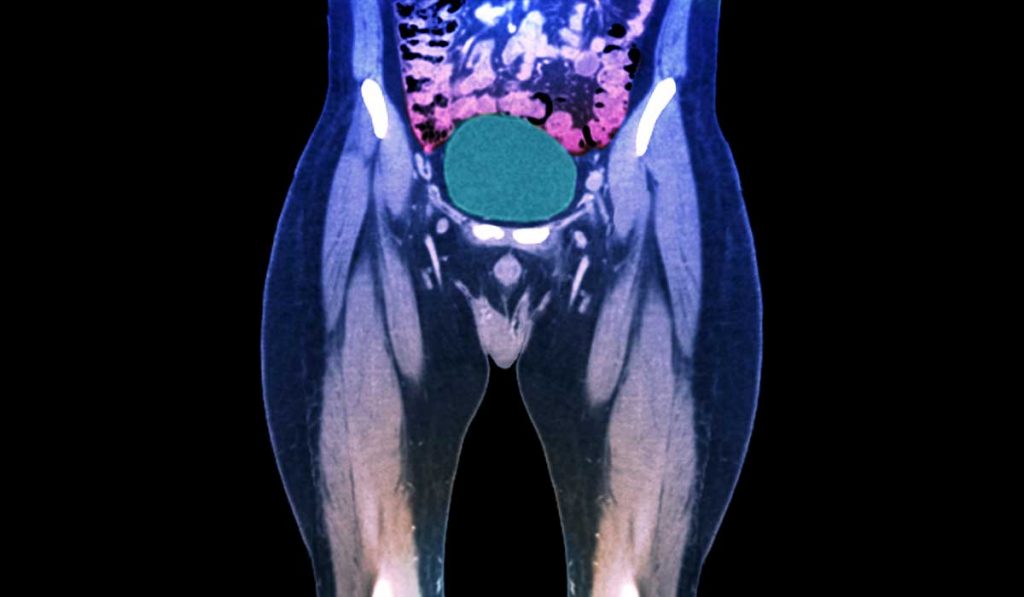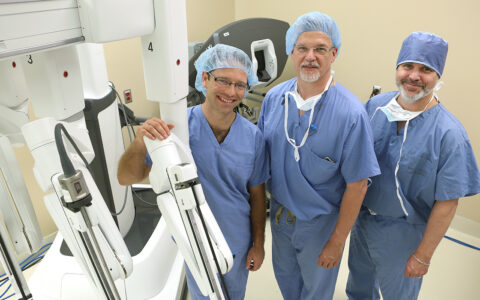Since gaining FDA approval in 1997, sacral neurostimulation devices have steadily advanced. One new MRI-compatible device, InterstimTM Micro, is a smaller, lighter and far more versatile version of its predecessors. Vanderbilt University Medical Center is one of 26 sites assessing its long-term benefit for patients with voiding dysfunction.
“Interstim Micro provides a way for the bladder to reprogram how it senses filling and storage of urine to reduce the episodes of urgency incontinence for the patient,” said site principal investigator Melissa Kaufman, M.D., a professor of urology at Vanderbilt. “It is an exceptionally powerful technology and the ELITE study is one of several clinical trials for these devices that we have been involved in through the years.”
Outpatient Relief
Sacral neurostimulation is gaining traction as an attractive therapeutic option for patients with overactive bladder and fecal incontinence. Indications are also expanding to include interstitial cystitis, chronic pelvic pain and constipation, Kaufman said.
Small, MRI-compatible neurostimulation devices can be placed subcutaneously during an outpatient visit. Through two small incisions in the lower back, surgeons implant a programmable device that delivers low amplitude electricity to the sacral nerves, which contracts the surrounding muscles.
Previous work by Kaufman has shown even low, sub-sensory amplitudes can relieve overactive bladder symptoms. This further improves patient comfort and could also help older devices last longer. Newer devices, like the Interstim Micro, are rechargeable.
Tech Improvements
The Interstim Micro device takes up less than three cubic centimeters in the body. Patients can control the device using a smartphone app. Most notably, the device is full-body MRI-compatible for most patients. Other devices must typically be removed before MRI. Beyond practical benefits, the new trial will help determine any long-term clinical advantages associated with the device.
The ELITE trial will include three cohorts of patients with either overactive bladder, fecal incontinence, or non-obstructive urinary retention. It will assess any quality of life or continence improvements three months post-device implantation. The current enrollment target is 160 patients across the three cohorts.
“What we are able to accomplish … is offer patients who have failed behavioral and medical therapies an opportunity to regain their quality of life.”
Kaufman brings a wealth of experience to the trial and has led several other studies testing Interstim technology. The Interstim Micro is one in a suite of neurostimulation devices offered by the Department of Urology at Vanderbilt. Kaufman and Vanderbilt colleagues Stuart Reynolds, M.D., and Roger Dmochowski, M.D., have placed hundreds of neurostimulation devices to date and now average 10-15 per month.
“Very, very few patients are offered advanced therapies and what we are able to accomplish at Vanderbilt is offer patients who have failed behavioral and medical therapies an opportunity to regain their quality of life,” Kaufman said.
An Urgent Need
Most Americans will suffer from incontinence at some point in their life, particularly in hospitals and long-term care settings. Patients with voiding dysfunction often experience it secondary to other conditions, such as hormone loss, back injury or pelvic surgery, Kaufman explained. Regardless of the cause, the life-limiting effects are exceptional.
“Ninety percent of patients who have urgency incontinence report isolation, depression and even hopelessness,” Kaufman said. “And the stigma around this is a very real entity. Patients are reticent to discuss it with their providers and therefore are undertreated. I have patients who have lost the capacity to go about any of their normal daily activities and avoid company because of their fear of leakage.”
The new trial is another step toward restoring dignity and quality of life for these patients, Kaufman said.





